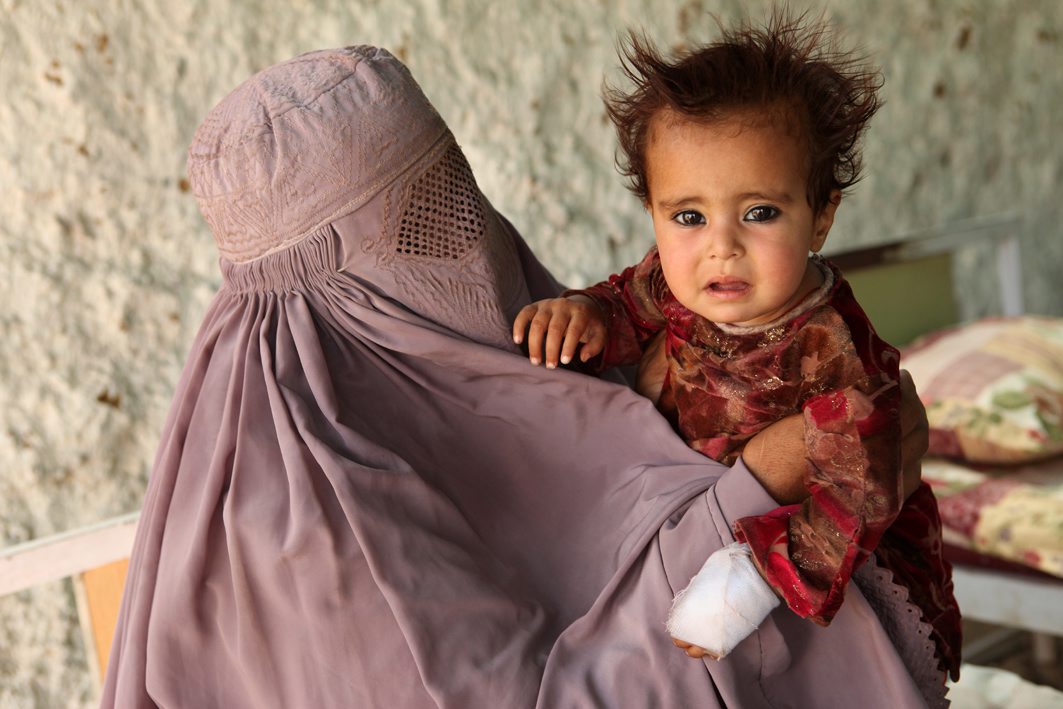Home remains a dream for the displaced in Pakistan's Jalozai camp
Home remains a dream for the displaced in Pakistan's Jalozai camp

JALOZAI, Pakistan, March 4 (UNHCR) - The restoration of peace in parts of north-west Pakistan has allowed many people to return to their towns and villages over the past year, but hundreds of thousands of civilians, like 11-year-old Ishaq Khan, remain far from home and dependent on aid.
"Figures tell us that the displacement crisis is far from over in Pakistan and there are still more than a million people who require continued humanitarian assistance," said Mengesha Kebede, UNHCR's representative in Islamabad. "And we must also not forget people who have returned and are in need of assistance in making their reintegration a sustained one," he added.
He reiterated that UNHCR was seeking US$69 million to continue delivering aid to those in need in the north over the first six months of this year.
Many of the beneficiaries of UNHCR assistance are living in Jalozai, located 30 kilometres west of the city of Peshawar. With a population of some 106,000 civilians, it is the largest camp for internally displaced Pakistanis. The government is reportedly considering a partial return for later this month.
Ishaq has been in Jalozai with his parents and a younger brother since August 2008, when they fled from their village in the restive Bajaur Agency. He now lives in a tent provided by the UN refugee agency.
"Our home was completely destroyed in the fighting [between government troops and militants] and we had no other option but to leave our village and seek refuge in the camp," said Ishaq. Many other camp residents tell a similar tale of their flight from Bajaur in the Federally Administered Tribal Areas.
The young Pakistani is desperate to return home, but cannot do so because of continuing fighting and unrest in the north-west tribal regions. "I believe that peace will be restored to my region one day, but we want that to happen soon," he told recent UNHCR visitors to the camp.
"Once that happens, I would appeal to the government to help us rebuild our destroyed houses, and also help rebuild this country that has suffered so much," added Ishaq, who dreams of one day becoming a doctor.
Today, there are more than 1 million internally displaced people in Pakistan. Some 114,000 of them reside in nine camps and the rest are staying with relatives or renting homes across the North West Frontier Province. Almost 1.7 million people have returned home over the past year, mostly to Swat and other districts of Malakand Division.
But Ishaq and about 250,000 other people from Bajaur remain displaced and may have to wait for some time before return is possible. Around 74 percent of Jalozai's population originates from Bajaur.
UNHCR is helping the government to run Jalozai and eight other camps. The refugee agency has also helped register the people displaced from Malakand Division and the Federally Administered Tribal Areas.
Syed Rehman, 53, another camp resident from Bajaur, is also eager to go back with his family. "We have spent some 18 months in this camp, but now we are fed up here and want to go back to our lush, green valley, which was once famous for peace," he said, while stroking his white beard.
UNHCR, meanwhile, hopes that donors will respond generously to its appeal so that the refugee agency can continue to provide shelter, counselling and other assistance to the displaced and to maintain emergency preparedness in case of more displacement in 2010.
By Qaiser Khan Afridi in Jalozai, Pakistan








